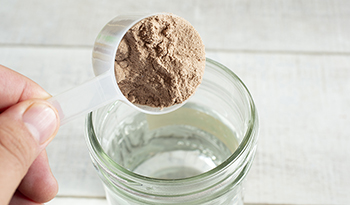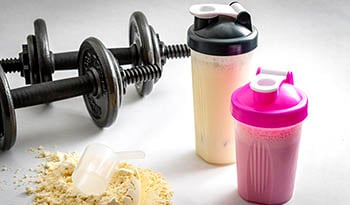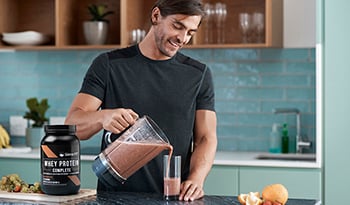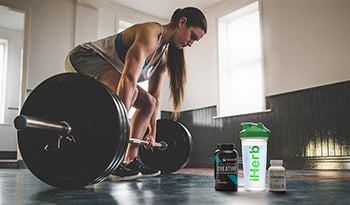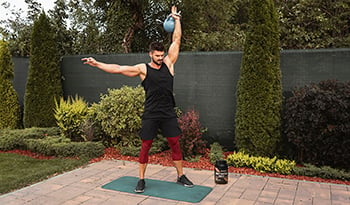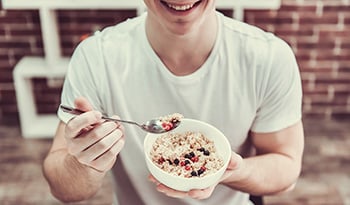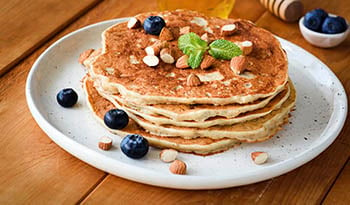Serbuk Protein vs Suplemen Penggantian Makanan: Apakah Perbezaannya?
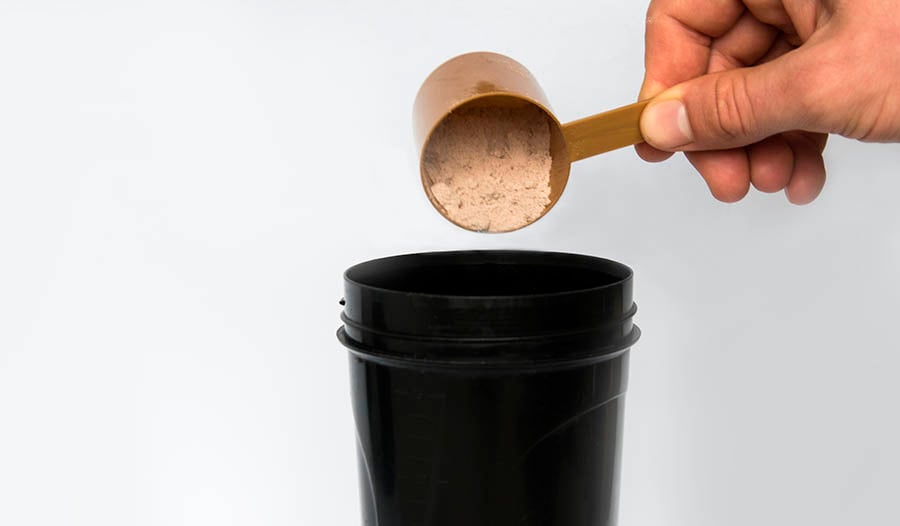
Oleh Manuel Villacorta, RD
Dengan protein tersedia dalam pelbagai bentuk seperti tiub serbuk, pra-dicampur dalam lorong tambahan, di dalam bar protein dan sejenisnya, terdapat banyak kekeliruan tentang sama ada produk ini boleh digunakan sebagai ganti makanan atau tidak. Sesetengah orang tertanya-tanya bila sesuai untuk menggunakannya sama sekali. Jika anda salah seorang daripada orang-orang ini, mari kita menyiasat.
Apakah Penggantian Makanan?
Pengganti makanan ditakrifkan sebagai pengganti makanan pepejal dan paling sering datang dalam bentuk bar dan shake. Oleh kerana mereka biasanya dikawal bahagian dan kalori, sesetengah orang lebih suka menggunakan pengganti makanan sebagai alat penurunan berat badan dan beberapa kajian memang menunjukkan bahawa penggantian makanan boleh mengakibatkan penurunan berat badan yang berjaya. Walau bagaimanapun, sesetengah orang hanya menggunakannya kerana kemudahan apabila mereka tidak mempunyai masa untuk menyediakan makanan.
Sebaik-baiknya, pengganti makanan harus mempunyai 400-500 kalori atau kandungan kalori yang sama dengan makanan yang masuk akal dan biasanya harus mengandungi ketiga-tiga makronutrien: protein, karbohidrat dan lemak. Sebagai ahli diet, dalam amalan saya, saya mengesyorkan dua makanan yang masuk akal dan pengganti makanan atau dua pengganti makanan dan makanan yang masuk akal dengan makanan ringan. Amalan ini mempunyai kecenderungan untuk menggalakkan penurunan berat badan sambil memberi tubuh khasiat yang betul.
Apakah Suplemen Protein?
Minuman protein datang dalam dua bentuk: serbuk pracampur atau protein. Minuman pra-campur biasanya apa yang anda lihat dibotol dan siap diminum di kedai runcit. Serbuk protein biasanya terdapat dalam tab atau beg dan memerlukan pengguna mencampurkannya dalam air, susu atau cecair pilihan mereka. Walau bagaimanapun, bentuk protein ini tidak dianggap sebagai pengganti makanan dengan sendirinya kerana biasanya tinggi protein, tetapi tanpa cukup makronutrien lain.
Bilakah hanya serbuk protein sesuai? Jika anda memilih untuk menggunakan serbuk protein sebagai pengganti makanan , disarankan agar anda menambah makanan lain kepadanya. Ini kerana protein shake harus mengandungi campuran semua makronutrien: protein, karbohidrat dan lemak. Sebagai contoh, pisang, dua sudu mentega kacang dan satu sudu serbuk protein adalah shake yang cepat dan lazat yang mengandungi semua makronutrien, berada dalam julat 300-400 kalori dan akan menjadi pengganti yang hebat untuk sebarang hidangan. Hidangan seperti ini adalah pilihan yang bagus untuk orang yang tidak selalu mempunyai masa untuk merancang makanan atau mereka yang mahukan sarapan pagi yang cepat.
Dalam bentuk ini, serbuk protein juga boleh sesuai sebelum senaman untuk menyediakan bahan bakar dan selepas senaman untuk menggalakkan pemulihan otot dan pengisian semula badan dari usaha aktiviti fizikal. Sebagai strategi untuk mengelakkan makan berlebihan, saya mengesyorkan agar pelanggan saya mengambil minuman protein sebelum keluar makan atau perhimpunan sosial yang mungkin mempunyai makanan yang kurang sihat. Ini akan membuat anda kenyang tanpa menyumbang sejumlah besar kalori.
Pengganti makanan dan minuman protein semuanya mempunyai kegunaan dan tempat tersendiri dalam diet seseorang. Kuncinya adalah menggunakannya dengan penuh perhatian dan tepat untuk meningkatkan matlamat pemakanan anda.
Rujukan:
- https://www.ncbi.nlm.nih.gov/pubmed/12704397
- https://www.ncbi.nlm.nih.gov/pmc/articles/PMC2851659/
PENAFIAN:Hab Kesejahteraan ini tidak berhasrat untuk memberikan diagnosis...




















































































